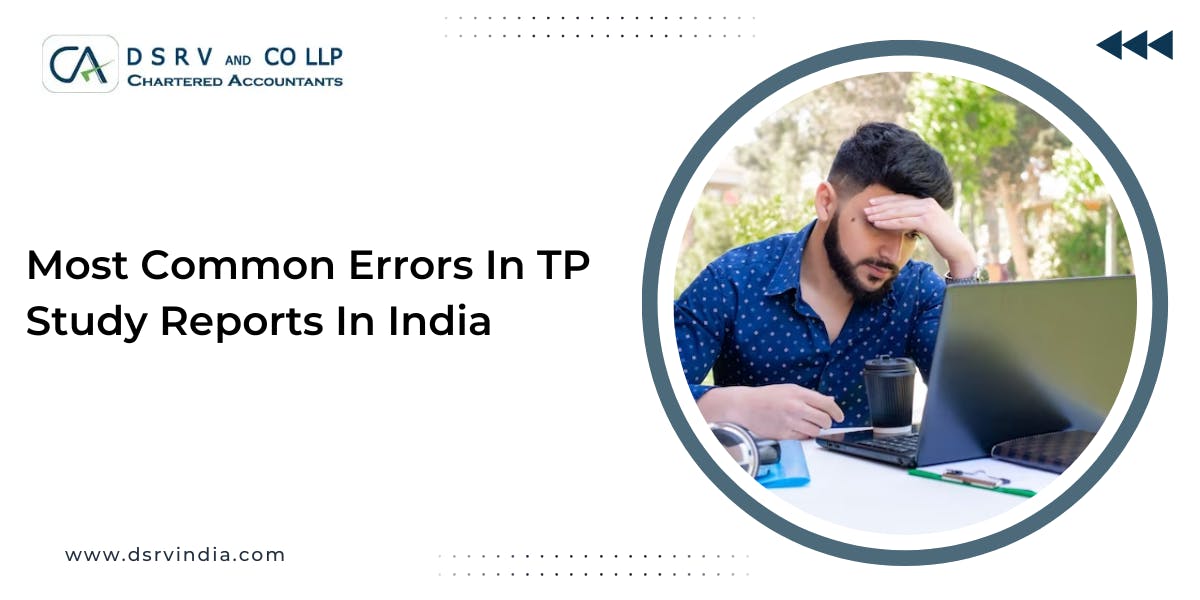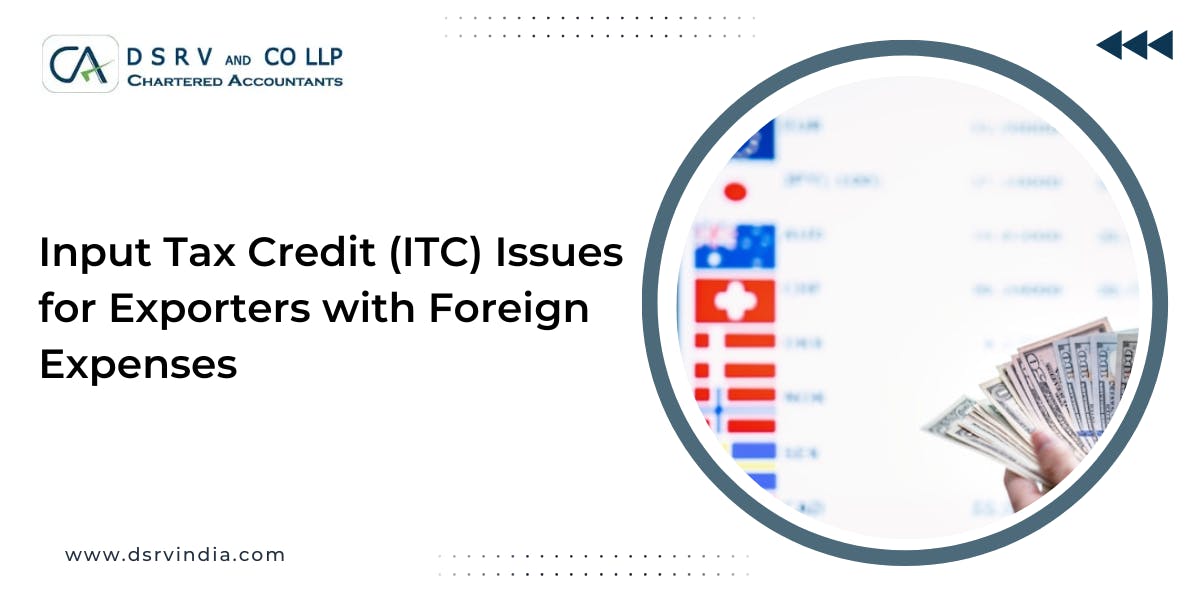Wondering why some businesses are doing financially well while you are facing challenges?
Our latest blog on 11 Common Errors in TP Study Reports is here to answer that question. We get it – you're serious about following the rules when it comes to transfer pricing.
You do everything correctly, including documenting everything, being open and honest with the tax authorities, and according to local laws. But, hey, even the most reputed businesses may make mistakes, and those mistakes might be the difference between a good tax status and some serious penalties. So, what's the plan?
Well, we're here to help you sidestep those mistakes in the transfer pricing study report. Why make it simple for tax authorities to identify mistakes when they already have lots of tools? Let us make sure your transfer pricing stays on track!
Being one of the CA firms in Gurgaon, we are always ready to help you gain financial success in India by maintaining compliance with and latest regulations.
Let’s Discover The Common Errors In Tp Study Reports!
If you want to perform company registration in Delhi, or any other region of India, get in touch with our financial experts. However, first have a look at some common errors in transfer pricing that might affect your business growth.
Mistake 1 - Insufficient Documentation
Inconsistencies and gaps in information across numerous documents, such as the master file, local file, country-by-country report, tax returns, and financial statements, are common mistakes in transfer pricing paperwork. Advice - Comprehensive documentation is important for transparency and trustworthiness, as it ensures that all important information is easily accessible and easy to understand. This mismatch may raise worries among tax authorities, resulting in audit risks, penalties, and modifications.
Advice - To reduce this risk, it's crucial to align transfer pricing documentation with business operations, financial results, and tax positions. Regularly evaluating and updating documentation to reflect changes in organizational structure, functions, assets, risks, and plans is critical to ensuring accuracy and compliance.
Read This : Start Your Indian Start-up Successfully With These Insider Tips!
Mistake 2 - Inadequate Comparable Data
One more common error in transfer pricing research is failing to use the appropriate information for comparison. This error can reduce the study's reliability and lead to incorrect results.
Advice – Understanding how the industry works, what the market is like, and economic factors is super important. By using good-quality and relevant data, the study becomes more trustworthy, stands up better to checks, and matches what's fair in business
Mistake 3 - Inconsistent Application of Methods
Inconsistencies in applying methods throughout the study can introduce errors and compromise the reliability of results.
Advice - Maintaining methodological consistency is very important for providing accurate and useful results, which strengthens the study's validity.
Must Read : Understanding The Significance Of Transfer Pricing Documentation In India
Mistake 4 - Ignoring Local Regulations
Ignoring local regulations can cause legal issues and damage the credibility of the transfer pricing study's credibility.
Advice - Adhering to and respecting applicable local legislation is critical for preserving compliance, creating trust, and ensuring the study's legitimacy.
Mistake 5 - Overlooking Economic Changes
Another critical error in transfer pricing is not considering economic changes. If your transfer pricing policies don't reflect the real economic situation and value creation of your business activities, it can lead to problems. Tax authorities may question your transfer pricing if they think your transactions with related parties are more about avoiding taxes than actual business reasons.
Advice - To avoid this, make sure your transfer pricing policies match the real contributions of each part of your business to the overall profits, considering their roles, assets, and risks. Also, show that your different parts can actually do what they're responsible for and handle the risks involved.
Also Read: A Beginner's Guide to Cross-Border Mergers and Acquisitions in India
Mistake 6 - Not Considering Industry Trends
Forgetting to check what's happening in your industry is a big error. Industry trends can affect your study, making it outdated.
Advice - Keep an eye on what's happening in your industry and update how you set prices accordingly. This helps your study stay accurate and trustworthy as things change in the business world.
Mistake 7 - Inadequate Functional Analysis
A proper functional analysis involves closely examining the roles, responsibilities, and contributions of different elements within your organization. Neglecting this can lead to inaccuracies in your transfer pricing study, impacting the reliability of your conclusions.
Advice - Make sure you know the roles and contributions of each part. This helps make your study accurate and reliable.
Mistake 8- Ignoring Comparable Uncontrolled Price Method
Ignoring the Comparable Uncontrolled Price (CUP) Method is a mistake. This strategy works like a ruler to determine whether your pricing with connected parties is reasonable. It compares them to prices charged by unrelated firms. Failure to follow this procedure can make your results unreliable and might cause issues with tax authorities.
Advice - Always use the CUP Method to ensure that your transfer price analysis is accurate and consistent with the arm's length principle.
Mistake 9 – Missing Deadlines
Failing to complete your transfer pricing study on time is a major mistake. Missing deadlines can cause issues and draw unwelcome attention.
Advice - Timely completion is crucial because it keeps things smooth and helps avoid potential issues like audits, penalties, or delays in decision-making. Make sure to plan well and stick to your tp study schedule to ensure a successful and hassle-free process.
Mistake 10 - Incomplete Record-Keeping
Forgetting to keep complete records for your transfer pricing study is a mistake. Imagine trying to remember important details without notes. Quite difficult, right?
Advice - Keeping everything organized and documented is essential. It helps in inspections and audits, and it makes your research more credible. Always keep track of all information and have a clear record-keeping system.
Mistake 11 - Inadequate Documentation Format And Language
Another error in transfer pricing documents is not using the proper format and language. There are unique regulations that apply to where you are and who is reading. Certain regions require specific structures or templates. They could also request documentation in a specific language.
Advice - To avoid this mistake, learn the rules in each location you work and ensure that your documents follow them. Make sure that everyone understands them, and use clear, concise, and consistent language.
Conclusion
To sum it up, making a good Transfer Pricing study in India means not making Common Errors in TP Study Reports. Make sure your documentation is clear, that you are using accurate information, and that you are aware of developments in your sector.
Keep accurate documents, stay on schedule, comprehend your organization thoroughly, and don't overlook any crucial procedures. By doing these things, your Transfer Pricing study becomes a helpful guide for your business decisions in 2024.
However, if you feel this process little bit difficult, which is quite normal for your busy schedule, get in touch with DSRV India. Our tax experts can guide you to prepare a perfect TP Study within the timeline.






